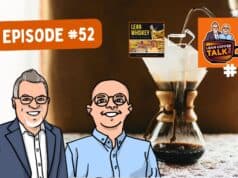Recently I was giving a speech and had to follow Phil Gordon, famous poker pro and host of Celebrity Poker Showdown. Needless to say, he's a tough act to follow with stories of massive pots, wealthy businessmen who lose millions to the pros in Vegas, and poker with the likes of Michael Jordon and Jeff Gordon. His topic was the 6 keys to success in poker and life. He of course mostly focused on poker, but the points were all relevant. I'll share all 6 points but want to emphasize the two most relevant to lean.
- Aggression – Force your competitors, or opponents, to make decisions based on what you do. Identify targets and go after them. As this related to poker, calling is almost never the correct move. It's either fold or raise.
- Patience – While is sounds contrary to aggression, it is not. Wait for profitable situations. Being in action doesn't imply being in the right action. As this applies to poker, only play 15-20 percent of hands, and build a bankroll slowly and cautiously.
- Observation – Every action and inaction gives you information. This to me was one of those great connections to a little understood and even smaller practice within lean, the skill of deep observation. I wrote about this in the broad sense recently in the article The Current State: Progress Starts Here for Manufacturing Engineering Magazine. Whether at poker or business, the skill of observation requires several things. First, a strongly held belief or principle that understanding comes through observation and that thinking you know what's true is different than actually knowing it. Second, you need a framework to categorize your observations. In the case of lean, we talk of a framework of effective activities, connections and flows. In poker, it is much more than looking for “tells” which is a small part of observation. More observation should focus on patterns such as when bets are raised, called, folded, raised by a lot or a little and so on. Third, you need to treat your observations as a hypothesis; it's only a best guess of the current state that must be tested. A top pro may often be sure that they lost a hand and even know what they are losing to, but still call the bet just to test their theory. That's considered a good investment.
- Courage – Have an “all-in” mentality. In poker, scared money is dead money. Do not be afraid, in poker or life, to make the right decision. Make the decision and be willing to back your judgement. The right decision but the wrong result is good enough, because you can't control every factor. In poker, if you're never caught bluffing, you're not bluffing enough.
- Resiliency – All you need in poker is a chip and a chair and you can fight your way back. He told a story of a guy who thought he busted out but had a chip under his whisky glass. He sat back down and played it, and ended up winning the tournament. Don't blow up when things get tough. That's when you need a steady hand.
- Desire and work to improve – This is of course very connected to lean. Fight to improve every day. For poker, it takes a minute to learn and lifetime to master. Always seek more knowledgable opponents because the learning is very valuable. Self analyze your actions with the critical eye. A lean company like Toyota learns from everything, whether successful or not. They don't celebrate success and sulk over loss – both drive the opportunity to reflect and to learn.
OK, that's it. This is a little bit of a tangent but I hope you enjoyed it anyway.
What do you think? Please scroll down (or click) to post a comment. Or please share the post with your thoughts on LinkedIn – and follow me or connect with me there.
Did you like this post? Make sure you don't miss a post or podcast — Subscribe to get notified about posts via email daily or weekly.
Check out my latest book, The Mistakes That Make Us: Cultivating a Culture of Learning and Innovation:









